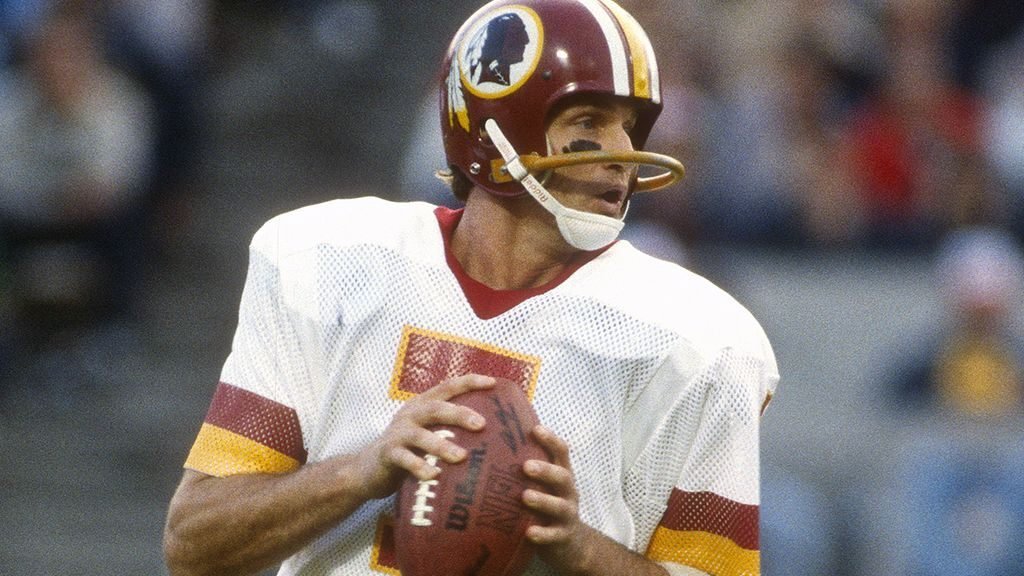It’s been a rough month for the Washington football team, with three losses in four games that have sunk any playoff hopes. At 4-8, Washington is tied for last place in the NFC East with the Giants, who win the tiebreaker because they’ve beaten the Commanders in both games. A day after the 45-10 Thanksgiving massacre loss to Dallas, owner Josh Harris fired defensive coordinator Jack Del Rio and defensive backs coach Brent Vieselmeyer to kick off a coaching purge that will include the imminent departure of head coach Ron Rivera.
We’ve seen this dance before, actually too many times over the past three decades.
At least Redskins great Joe Theismann enjoyed his moment in the sun. He was honored as “Legend of the Game” when Washington hosted the Giants at FedExField on Nov. 19. Theismann played for the Redskins from 1974 to 1985 (12 seasons), tallying 25,206 passing yards, 2,044 completions and 3,602 attempts, all franchise records, plus 160 touchdown passes. He was named NFL MVP in 1983 and is in the Ring of Fame at FedExField.
Theismann became known as an elite NFL quarterback in the latter stages of his career. But could his progression to that level have come earlier had Redskins coach George Allen put more faith in him as a starter in the 1970s? I explored that possibility in my newly published book, George Allen: A Football Life.
Theismann has been perhaps my most important source of information from a player perspective in my literary work. For my first book, The Redskins Encyclopedia, he provided valuable insight on the three Redskins coaching eras when he wore the Burgundy & Gold: George Allen, Jack Pardee and Joe Gibbs. For George Allen: A Football Life, he shared stories on the coaching philosophy of Allen, a defensive-minded coach, his yearning to beat the Cowboys and his eccentricities.
Allen traded a first-round draft pick for Theismann in the 1974 offseason, after Theismann starred for three years in the Canadian Football League. He was originally drafted by the Dolphins in 1971, but opted instead to play in the CFL.
When acquired by Allen, Theismann acknowledged that aging quarterbacks Billy Kilmer and Sonny Jurgensen, who had rotated starting roles in Allen’s first three seasons in D.C., were great QBs. He also said he looked forward to competing for the starting job, a comment that angered the two crusty veterans.
Allen kept Theismann on the bench in his first two seasons, albeit allowing him to return punts. Theismann started a few games in `76 and `77, rotating with Kilmer. He showed flashes at times but was mostly inconsistent and didn’t evolve into a solid NFL quarterback until Pardee gained the Redskins’ coaching duties in 1978. Theismann later became an elite NFL quarterback under Gibbs.
With that in mind, I asked Theismann in my research of George Allen: A Football Life if his path to becoming an elite quarterback would have been expedited if Allen had given him an earlier chance to start. Both owner Edward Bennett Williams and offensive coordinator Ted Marchibroda told Allen after the `74 season that Theismann deserved a legitimate chance to start. In his four seasons with the George Allen-coached Redskins, Washington was a very good team that got knocked out twice in the first round of the playoffs. It’s conceivable that they may have gone much deeper in the playoffs with a quarterback on the level of say, the Steelers’ Terry Bradshaw or the Cowboys’ Roger Staubach, two of the elite quarterbacks of that era. Kilmer started both first-round playoff losses in Theismann’s years playing for Allen.
Theismann wasn’t convinced that Allen should have considered him the bonafide starter.
“George would have done exactly what he wanted to do,” Theismann told me. “That was the impression I always had of him. He had a vision, he had a concept, he had a philosophy, and he was going to follow it, irrespective of recommendations from anyone. Billy managed the game well. George wanted to run the football. I believe the greatest victory that George could have ever received would have been 2-0 in a game where the offense didn’t make a mistake and turn it over, and the defensive won the game with a safety.”
So there you have it. We can only speculate on what may have happened had George Allen tapped No. 7 as his true starting QB.


